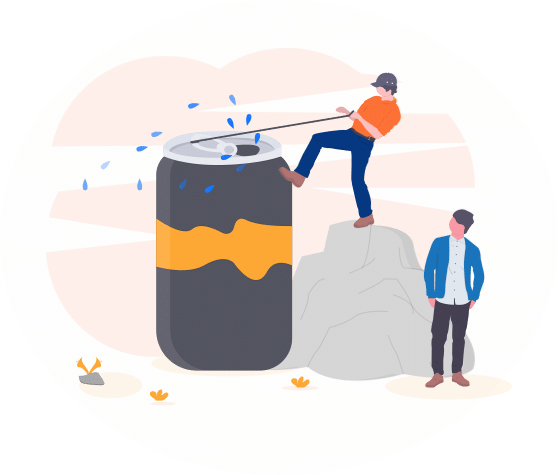Alcohol Addiction Treatment Centers in Clinton, SC
Looking for an alcohol addiction treatment center in Clinton? Vertical Treatment Centers is here for you.

Vertical Treatment Centers can assist you or someone you care about if you or they are battling alcohol addiction in South Carolina. Our addiction treatment programs are designed to provide the highest quality of care. At Vertical Treatment Centers, addiction specialists work with you and your loved one to address the fundamental causes of your addiction and provide the most effective intervention, coaching, and support services to achieve sobriety.
We do not offer a detox program. Our addiction professionals provide outpatient addiction treatment services such as medication-assisted treatment, group therapy, counseling, and support in a judgment-free atmosphere. Let’s start reclaiming your life.
WHAT ARE THE SIGNS OF ALCOHOL ADDICTION?
Alcohol use disorder, often referred to as “alcoholism,” is a life-threatening condition that affects millions of individuals worldwide. It is defined by recurrent, harmful consumption of alcohol that causes emotional or physical issues and discomfort. Alcohol addiction can emerge when a person consumes alcohol despite its negative repercussions.
Though alcohol use disorder is generally thought of as a vice or a habit, it’s actually a dangerous illness that requires professional treatment. Symptoms of alcohol use disorder include:
- a continuous need or desire to drink
- a sensation of warmth, numbness, or tingling in the body after drinking
- an inability to control drinking despite debilitating effects
HOW DOES ALCOHOL REHAB WORK?
Our South Carolina alcohol recovery program provides outpatient services to accommodate our patient’s busy lives. Our outpatient program consists of mental health treatment, including individual and/or group counseling, and medication-assisted treatment (MAT). We are not a detox facility, a halfway home, or an inpatient treatment facility.
We provide an initial consultation with all patients to design a tailored treatment plan to meet each individual’s distinct needs. Our South Carolina alcohol treatment program can give you or a loved one excellent care and counseling. Request additional information or call us now!
How treatment works at Vertical Treatment Centers
Get Started
Meet with your team
Meet with a medical team member and your therapist to complete the assessment process, develop a personalized treatment plan, and receive prescriptions based on your needs.
Reach your goals
Continue to attend individual and/or group counseling, complete toxicology screens, and meet with medical team members to progress toward your goals.